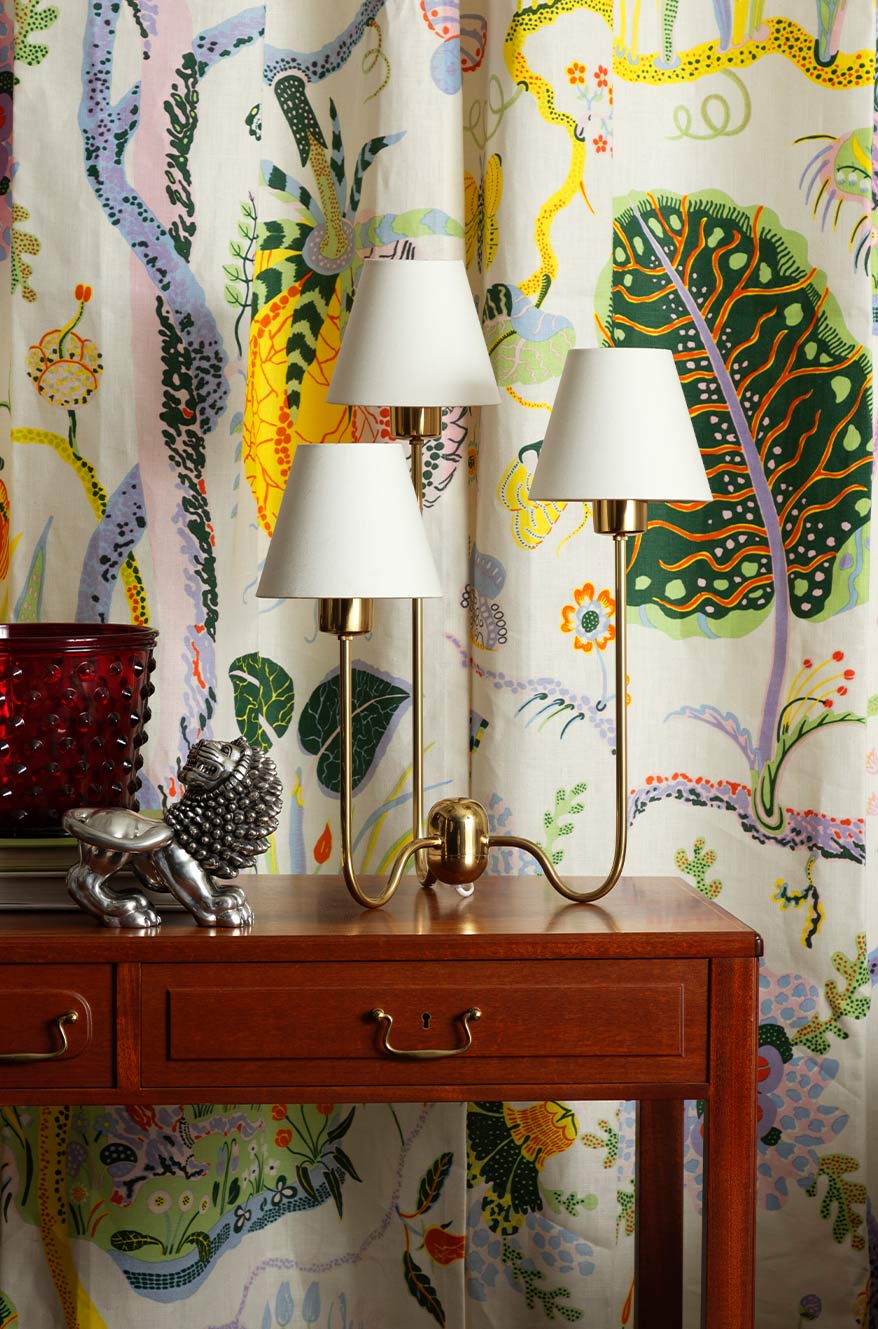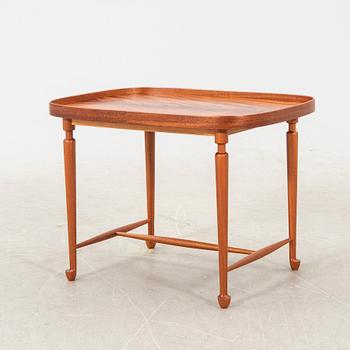Josef Frank with friends F387
For nearly 100 years, Scandinavian homes have been furnished with furniture and interior objects from Svenskt Tenn. These timeless objects had a significant demand even when they were new to the market, as they contrasted in form and color with what was common during the 1920s and especially the 1930s.
In the 1930s, Estrid Ericson (1894-1981) initiated a successful collaboration with the Austrian architect and interior designer Josef Frank (1885-1967). The first significant exhibition of Josef Frank's items for Svenskt Tenn was held at Liljevalchs in 1934, where, among other things, the generous Liljevalchs sofa was first shown. Josef Frank went on to create many true classics that have enriched both home and public institution interiors. He profoundly impacted Swedish design history and is today regarded as one of Sweden's most influential designers. Josef Frank's furniture and interior objects have become icons that never seem out of style.
For Josef Frank, "comfort and richness of color" were guiding principles, values that continue to permeate Svenskt Tenn's assortment. In their design aesthetics, different fabrics and bold colors are often mixed, as noted by Estrid Ericson in her article "White Walls and Colorful Textiles" in 1938:
"The textiles determine the colors in a room. Just like furniture, fabrics do not need to last a lifetime. Therefore, you can choose them boldly and freely. Just as wrong as it is to choose a type of wood for a room, it is incorrect to use only one fabric or color scheme."
When Estrid Ericson turned 50, Josef Frank, who had lived in the USA for a few years, sent her a gift across the Atlantic. The gift consisted of 50 textile patterns he had created at his desk in New York. With Josef Frank's passion for botany, they were primarily designed with inspiration from the colors and forms of nature but carried an expressionist atmosphere. These fabrics still form the basis of Svenskt Tenn's textile department and are one of the reasons he is now called the "Master of Patterns." "The theme auction includes several of his fabrics, along with furniture upholstered in them, where you will find classic patterns like "Poison," "Hawai," and "Manhattan." The auction also presents a selection of furniture, lighting, and interior objects designed by Josef Frank and others for Svenskt Tenn.



















































































